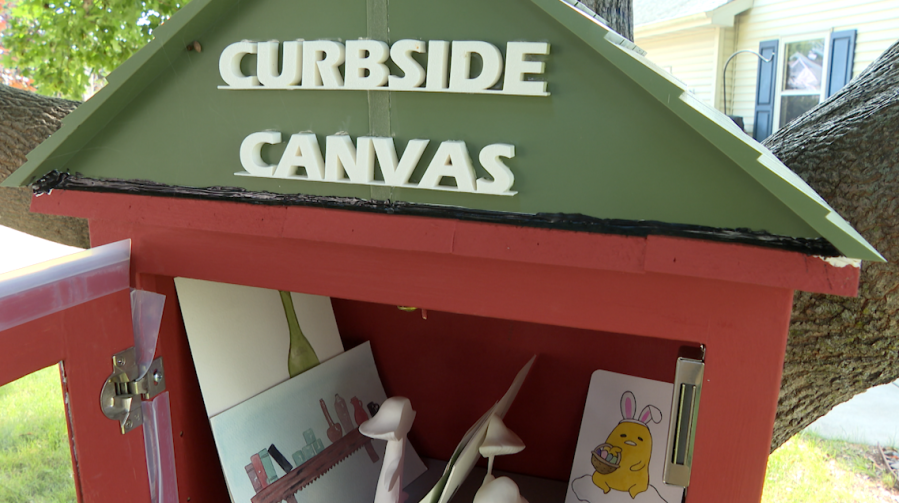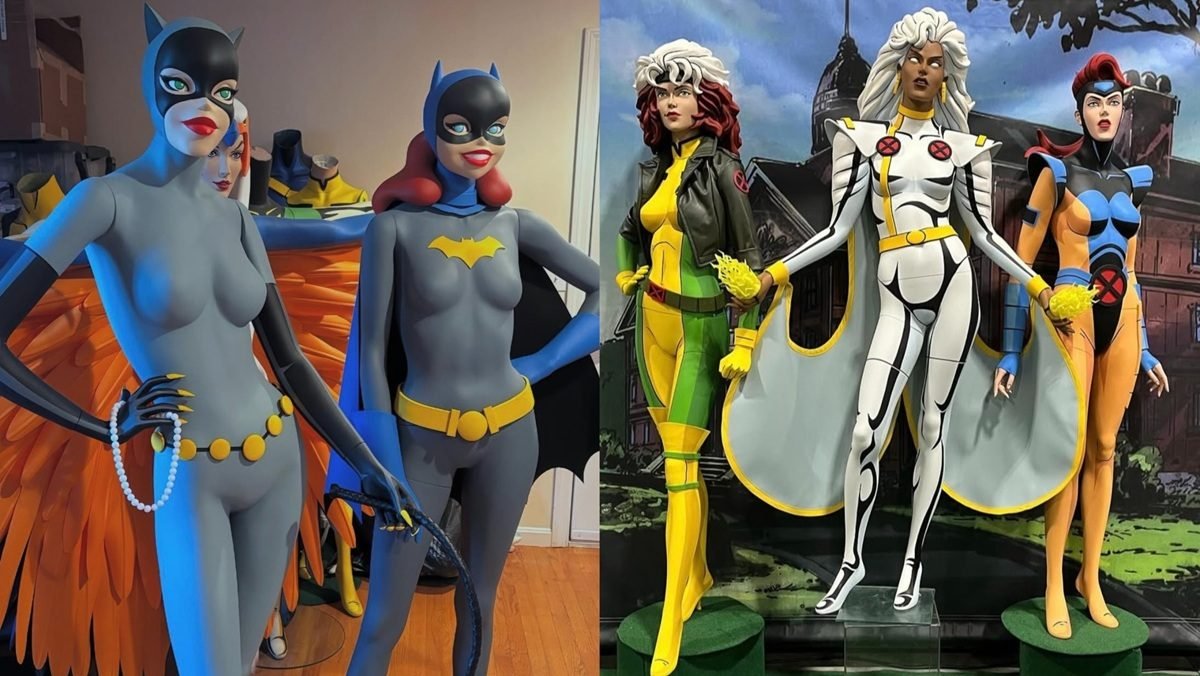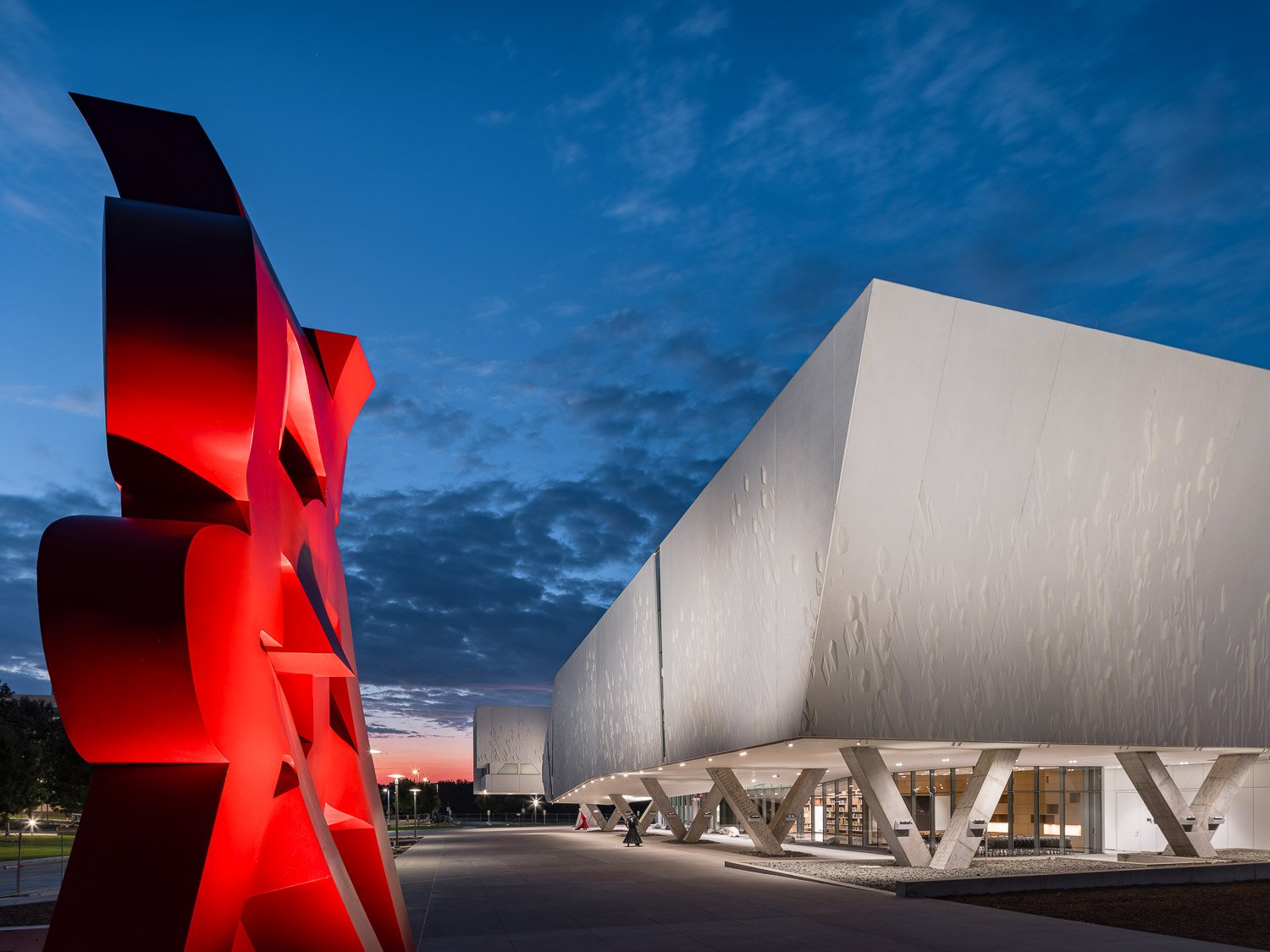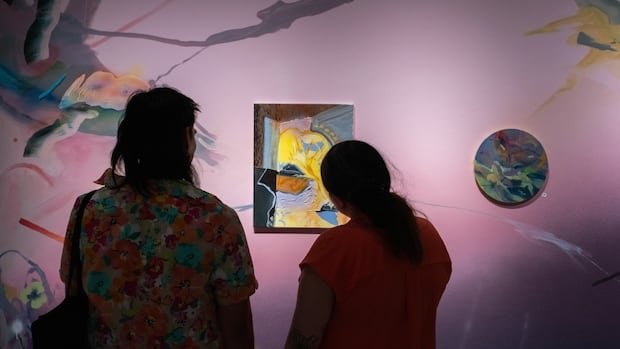Lucia Pizzani portrait/ Cecilia Brunson Projects.
Santiago De la Puente/ Cecilia Brunson Projects
An overwhelming number of artists and galleries descended on London from all corners of the globe for Frieze Week, and with so many art fairs and satellite events all over the city, it was difficult to navigate. Yet there were some themes and trends that really stood out for me, and I noticed some incredible artists who are pushing the boundaries of ceramic art.
Seven artist-innovators breaking out of the confines of traditional ceramics or integrating ceramic art in their practice that caught my eye at Frieze, Frieze Masters, Frieze Sculpture, 1-54 and Pace Gallery are; Esther Mahlangu, Frances Goodman, Genesis Belanger, Inci Eviner, Lindsey Mendick, Lucía Pizzani and Megumi Yuasa.
Originating from Brazil, South Africa, Turkey, UK, USA and Venezuela, these six women and one man are redefining notions of ceramic art. Elder statesman Esther Mahlangu and elder statesman Megumi Yuasa have been pushing boundaries for decades, while a younger generation including Frances Goodman, Genesis Belanger, Inci Eviner, Lindsey Mendick and Lucía Pizzani are innovating at the frontier between contemporary art, ceramic art and sculpture.
Lindsey Mendick
At Frieze London Lindsey Mendick exhibited new anti-anti-aging serums and potions, a collection of eye-catching ceramic sculptures, with Carl Freedman Gallery. Motifs including cigarettes, hearts, spiders and sweets decorate the vessels which feature familiar imagery from iconic films such as the wicked witch from the Wizard of Oz. Medick lends a distinctly contemporary, zeitgeisty-aesthetic to ceramics with her comment on contemporary society’s obsession with youth and rejection of the outdated tropes of women as witches.
Lindsey Mendick (b.1987) received an MA in Sculpture from the Royal College of Art, winning the Henry Moore Foundation Artist Award in 2020 and quickly making waves in the contemporary art world.
Lindsey Mendick says: “I’ll be exhibiting my new anti-anti-aging serums and potions! Ever since I can remember, I’ve been bombarded with advertising, films, art and literature that teach women about the perils of aging. I remember the Oil of Ulay adverts of the 90s; demanding me to ‘fight the 7 signs of aging’, the brilliant film Hocus Pocus where three spinster witches attempt to suck the lives out of little children in a bid to stay young; and of course, The Ugly Duchess painting (also known as A Grotesque Old Woman) by the Flemish artist Quinten Matsys, to me, a misogynistic satire of sexuality and vanity in older age.
The witch or the hag has long existed as a monstrous incarnation of the aging female body… an outsider of patriarchal society, she is often shown to be childless and anti-family, she is bitter and she is dangerous, she is to be avoided by those who are young and to be controlled and contained.”
Installation view of Lindsey Mendick ceramics at Carl Freedman Gallery, Frieze London 2024.
Carl Freedman Gallery
Lucia Pizzani
Venezuelan artist Lucia Pizzani exhibited with Cecilia Brunson Projects in the Smoke section of Frieze. Pizzani’s work was recently acquired by the TATE Collection and Magasin3 Museum of Contemporary Art in Stockholm. Pizzani’s exquisite ceramic vases and sculptures were featured in Smoke, a new section of Frieze London curated by Pablo José Ramírez which provided a platform for ceramic works exploring indigenous and diasporic histories. Ramirez curated an intriguing, refreshing collection of international ceramic artists who are reinterpreting or investigating pre-colonial traditions to use clay in expanded forms. Pizzani and the other artists featured in Smoke are testament to the impact of ceramic art as one of the most exciting and aesthetic forms in contemporary art.
Pizzani (b. Caracas, 1975) has collaborated with El Cercado since 2013, a pottery workshop on the Isla de Margarita, Venezuela, a village where pre-Hispanic ceramic traditions are still in practice. At Frieze Lonond, Pizzani presented new ceramic works produced using ancestral methods during a summer 2024 residency in El Cercado. Clay was extracted from local deposits and fired on an open bonfire kiln on the Isla de Margarita, with the rising smoke leaving its markings on the clay, and capturing the spirit of the community.
Luca Pizzani Installation at Frieze London, 2024.
Cecilia Brunson Projects.
Megumi Yuasa
At Frieze Masters an eye-catching group of delicate ceramic sculptures by Brazilian Megumi Yuasa, an elder statesman of sculpture who has been pushing the boundaries of ceramic art for six decades, was presented by Ortuzar Projects.
Yuasa (b. 1938) in Brazil and based in São Paulo, fuses Japanese and Brazilian aesthetics, materials and techniques, reflecting the history of the East Asian diaspora in Brazil.
His unique sculptures elaborate on conventions of Japanese ceramics by incorporating non-traditional materials such as metals, oxides and paints. While exhibiting frequently in Japanese-Brazilian circles around Brazil, the artist has also organized and taught ceramics classes and workshops for many decades. His work and teachings express his personal cosmology of absolute interconnection and universal source: “Everything is made from everything, everything depends on everything. Everything is everything.” His sculptures isolate elements and moments from nature, acting as distilled landscapes in which elements like trees, moons and seeds interact, whether balancing on, projecting off or supporting one another.”
Megumi Yuasa at Ortuzar Projects. Installation view at Frieze Masters, 2024.
Sky Sharrock.
Meanwhile at 1-54 at Somerset House, where art from Africa and its diaspora is celebrated and showcased, beautiful ceramic vases by South African Esther Mahlangu were juxtaposed with Mahlangu’s paintings at Melrose Gallery.
Esther Mahlangu
Esther Mahlangu (b. 1935, South Africa) is a pioneer of Pan-African contemporary art who began painting at the age of ten, when she learned traditional Ndebele techniques such as using natural pigments mixed with clay, soil and cow dung to paint directly on the exteriors of structures in her village, from her mother and grandmother. Mahlangu has spent decades adapting the visual language of the Ndebele to medium including painting, murals and ceramics. Rather than using stencils and tape to achieve lines and shapes, she paints by hand with chicken feathers and a variety of brushes.
During a seven-decade career of painting, Mahlangu has often applied her distinct geometric patterns to other objects, including vases.Mahlangu was the first African female artist to paint a BMW Art Car in 1991. Presentations of Mahlangu’s art during Frieze Week in London included the unveiling of a mural at the Serpentine, and the release of Esther Mahlangu: A Life in Colour, a book celebrating Mahlangu’s journey as a pioneer and innovator of contemporary African art.
Esther Mahlangu installation view, The Melrose Gallery at 1-54 Art Fair.
Sky Sharrock.
Featured in Frieze Sculpture are eye-catching ceramic sculptures by Inci Eviner and Frances Goodman. Curated by Fatoş Üstek to showcase sculptors who are pushing the boundaries of the medium, Frieze Sculpture is in Regent’s Park until 27th October.
Inci Evener
Inci Eviner’s Materials of Mind Theatre (2024) is made up of 25 stoneware sculptures resembling theatrical costumes, elevated from the grass by a platform that acts as a stage for performances when live performers replace one of the static sculptures. Eviner (b. 1956, Ankara, Turkey) represented Turkey at the 58th Venice Biennale in 2019 and her work encompasses ceramic art, drawing, performance and video, often referencing mythology and contemporary symbols.
Inci Eviner ‘Materials of Mind Theatre’ (2024), Frieze Sculpture 2024.
Sky Sharrock
Frances Goodman
Francis Goodman’s cyclical towers of candy-coloured pills Pillar IV and Pillar V featured glazed ceramic painkillers, vitamins and psychotropic drugs surrounding a metal structure. Goodman’s Pillars are monuments to the power of pills as vessels of pain relief or unnatural highs. Frances Goodman (b. 1975, Johannesburg) is a multi-disciplinary artist who often employs the materials of the beauty industry to interrogate the portrayal of women, drawing attention to popular cultural definitions that narrow the possibilities of identity to extremes of consumption, obsession, desire and anxiety.
Frances Goodman at Frieze Sculpture 2024.
Sky Sharrock
Genesis Belanger
In Mayfair at Pace Gallery until 9th November is a solo exhibition of Genesis Belanger’s cartoon-like sculptures with a similar pastel palette to Goodman’s pillars. Intriguingly titled In the Right Conditions we are Indistinguishable, Belanger’s extensive exhibition at Pace investigates humanity’s relationship to nature, domestic labour and self-curation through fourteen new sculptural groups. Belanger works on a large-scale and uses a delicious saturated palette to create candy-coloured, delectable ceramic platters of cakes and sweets, over-sized flowers and familiar domestic objects, injecting a sense of fun and colour into everyday, mundane objects. Belanger is also currently exhibiting in Une Chambre à Soi at Chateau la Coste in France.
Genesis Belanger at Pace Gallery, October 2024.
Lee Sharrock






